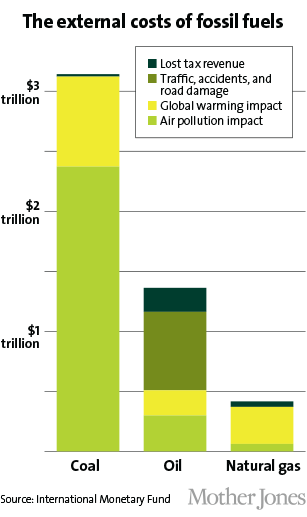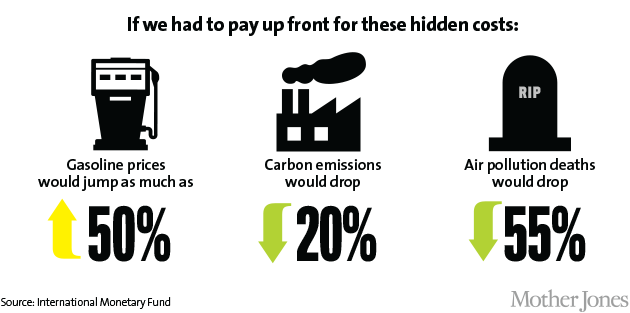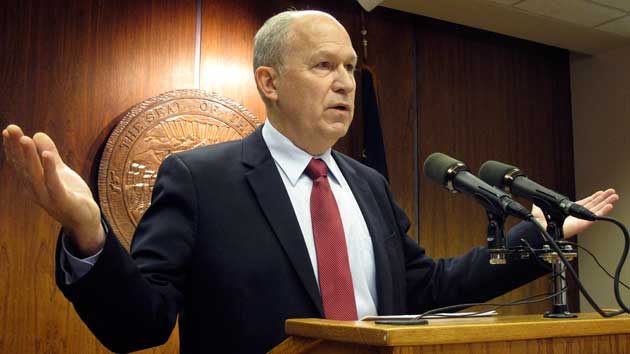
This year, the world’s governments are expected to hand out tax breaks and subsidies to the oil, gas, and coal industries to the tune of $233 billion. But the free ride for fossil fuels goes beyond that. That’s because fossil fuel companies don’t have to pay for the huge amount of damage caused by pollution from their products. Instead, we all do.
Recent research by the International Monetary Fund finds that the hidden economic and environmental costs of fossil fuel consumption—”externalities” in econspeak—add up to nearly $5 trillion a year, or 33 percent more than the federal budget.
About three-quarters of that comes from air pollution—for example, medical expenses incurred by people sickened by smog. The rest comes from climate change-related impacts: The costs of wildfires, floods, droughts, etc. The remedy, researchers say, is to increase taxes on fossil fuel energy so that we use less of it, and so that the biggest consumers will shoulder more of the social costs. That would make a gallon of gas more expensive—but potentially save tens of thousands of lives.











